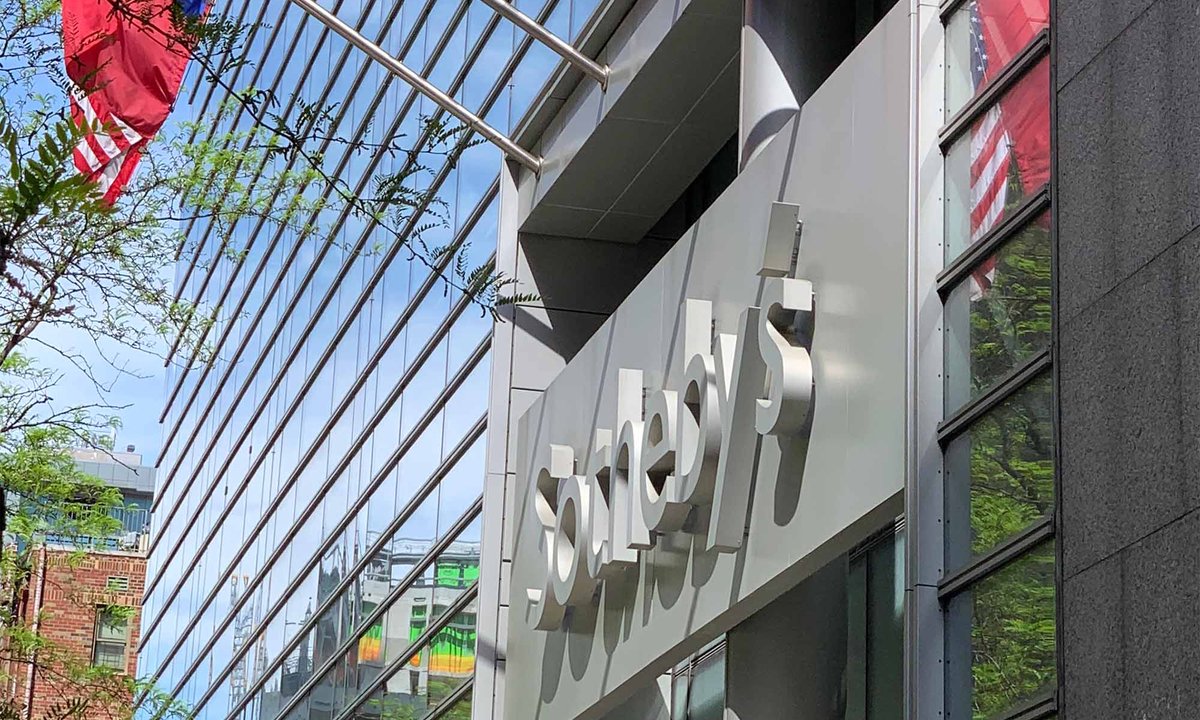Sotheby's Manhattan headquarters The Art Newspaper
Sotheby’s has agreed to pay $6.25m to the state of New York to settle a four-year-long case brought against the auction house for allegedly helping collectors avoid paying New York City and State sales tax.
New York’s Attorney General (NYAG) Letitia James first brought the case against Sotheby’s in November 2020, claiming that the auction house had “violated the law and fleeced New York taxpayers out of millions just to boost its own sales”. The original suit accused Sotheby’s of handing out tax-exemption documents called resale certificates to help top clients avoid paying taxes on art purchases made between 2010 and 2020. Such certificates are intended to be used only by dealers who then sell the work on to collectors, not by private collectors.
According to the statement issued by the NYAG today, the settlement will also require Sotheby’s to “make significant reforms to ensure its employees do not violate New York tax laws”.
“No one should be allowed to cheat the system and escape paying the taxes they owe,” NYAG James said in the statement. “Sotheby’s intentionally broke the law to help its clients dodge millions of dollars in taxes, and now they are going to pay for it. Every person and company in New York knows they are required to pay taxes, and when people break the rules, we all lose out.”
Of the clients that Sotheby’s allegedly helped evade taxes, the most significant is referred to simply as "the Collector". They bought $27m of art from Sotheby’s between 2010 and 2015 using resale certificates. The NYAG says the auction house accepted these certificates even though it knew “the Collector” was buying for their personal collection. In 2018, the Collector’s company, Porsal Equities, already agreed to pay the state $10.75m in taxes, penalties and damages, and admitted to improperly using resale certificates to purchase art for personal use.
The attorney general’s office also says it had evidence that, between 2012 and 2020, Sotheby’s accepted resale certificates from at least seven other clients on millions of dollars of art purchased for their personal collections. Furthermore, the NYAG claimed that in several cases, Sotheby’s suggested its clients should use the resale certificates, supplying and sometimes filling out the forms.
“These allegations relate to activity from many years ago—in some cases over a decade—and Sotheby’s provided much of the evidence which the AG used to obtain a settlement with the taxpayer referenced in the Complaint six years ago,” a Sotheby’s spokesperson says in a statement issued today. “Sotheby’s admitted no wrongdoing in connection with today’s settlement and remains committed to full compliance with all applicable law.”
Sources say that Sotheby’s has always believed that the state had the law and facts wrong, and that the NYAG failed to recognise that the lines between collector, art advisor and dealer are often blurred. The agreement states that Sotheby’s settled “to avoid the time, expense and distraction of litigation”. The auction house will be allowed to pay the $6.25m settlement—a sum equivalent to the probable legal cost of litigating this already costly case to completion—over the course of three years.
The mis- (or creative) use of resale certificates in the art world is not new. In 2016, the real estate tycoon Aby Rosen paid a $7m settlement to the then New York Attorney General at the time, Eric Schneiderman, “for failing to pay millions in sales and use taxes”. Schneiderman alleged that, between 2002 and 2015 through two companies, Rosen spent at least $80m on buying or commissioning more than 200 works of art by artists including Jean-Michel Basquiat and Andy Warhol for at least $80m. Rosen signed resale certificates for all these purchases, but according to Schneiderman, he “used the artwork for personal enjoyment and the enhancement of his real estate business brand”.

